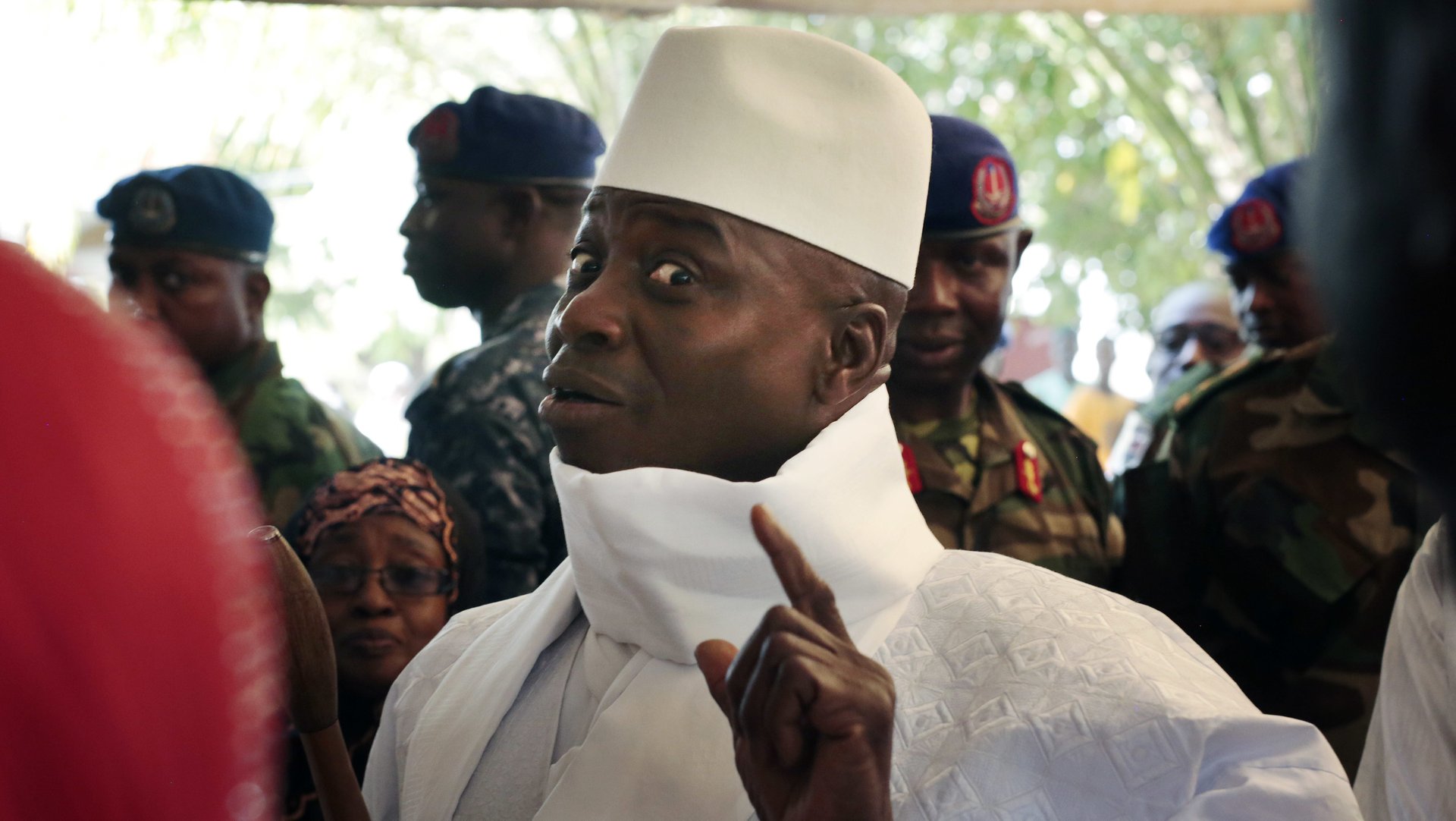The Gambia’s president has rejected the outcome of the election he conceded
The elections in The Gambia aren’t over after all.


The elections in The Gambia aren’t over after all.
On Friday night (Dec. 9), president Yahya Jammeh, who conceded defeat in the country’s presidential election a week ago, appeared on national television and called into question the veracity of the Dec. 1 election results.
Jammeh, who came to power in a coup in 1994, cited errors in the electoral commission’s final tally of the results. Adama Barrow, a local real estate developer, had won the elections by 50,000 votes.
But Jammeh said that “When the total votes per region were being tallied, certain figures were advertently transposed,” hence “swelling the number of votes Mr. Barrow polled nationally.” These errors, Jammeh said, were “unacceptable,” and called for fresh elections be held.
“On this note, I want to make it very clear. That in the same way I had accepted faithfully the results, believing that the IEC was independent and honest, I hereby reject the results in totality,” Jammeh said.
The announcement dampened the enthusiasm that followed the defeat of Jammeh last week. Jammeh even called and congratulated Barrow live on state TV—a poignant moment that was both shocking and filled many Gambians and Africa watchers with hopes of a democratic and peaceful transition of power.
The United States strongly criticized Jammeh’s statement describing it as “a reprehensible and unacceptable breach of faith with the people of The Gambia”.
On Friday night local time (Dec. 9), social media users within the country reported electricity cut-offs and the presence of soldiers in the streets. There is also a growing apprehension over how the opposition led by Barrow will respond, or whether the regional bloc, the Economic Community of West African States (ECOWAS) or the African Union (AU), should interfere if the situation unfolds into a full-blown crisis.
President Jammeh might have been rattled by the winning coalition’s sentiments this week, who said they were looking to prosecute him within a year. During his 22-year rule, Jammeh made headlines by , carrying out a deadly witch hunt on political opponents and imprisoning journalists and threatening to behead gays.
During and before the elections, there had also been uncertainties that Jammeh would ever accept the results if he was defeated. He was after all the strongman who claimed that he would rule for “one billion years” if “Allah says so.”